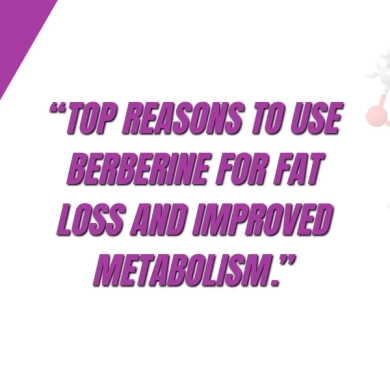Fiber: The Underrated Nutrient You Need More Of
Fiber is a vital nutrient that often doesn’t get the attention it deserves. While carbohydrates, proteins, and fats are widely discussed, fiber tends to be overlooked, despite playing a critical role in overall health. Whether you’re looking to improve digestion, support heart health, or even lose weight, fiber should be a staple in your diet.
In this blog, we’ll explore what fiber is, the different types of fiber, and the numerous benefits it offers for your health. We’ll also look at the best sources of fiber and how much you need in your daily diet to maximize its health benefits.
What Is Fiber?
Dietary fiber is a type of carbohydrate that the body cannot digest. Unlike other carbs that break down into sugar molecules, fiber passes through the digestive system largely intact. This unique property is what gives fiber its remarkable health benefits.
There are two primary types of fiber:
- Soluble Fiber: Dissolves in water to form a gel-like material. It can help lower cholesterol and blood glucose levels.
- Insoluble Fiber: Does not dissolve in water. It adds bulk to the stool and helps food pass more quickly through the stomach and intestines.
Both types of fiber are crucial for different reasons, and a well-rounded diet includes a mix of both.
The Health Benefits of Fiber
Fiber is not just important for digestion; it has far-reaching effects on various aspects of your health. Here are some of its primary benefits:
1. Improves Digestive Health
Fiber is most commonly known for supporting digestive health. Insoluble fiber helps add bulk to stools and promotes regular bowel movements, preventing constipation. A healthy digestive system reduces the risk of conditions like diverticulitis and hemorrhoids.
2. Helps Control Blood Sugar Levels
For people with diabetes or those at risk, fiber, especially soluble fiber, can be incredibly beneficial. Soluble fiber slows the absorption of sugar, helping to regulate blood sugar levels and prevent spikes. Fiber-rich foods are essential for managing blood glucose.
3. Supports Heart Health
One of fiber’s most significant health contributions is its ability to lower cholesterol. Soluble fiber binds with cholesterol particles and helps remove them from the body, lowering cholesterol levels and reducing the risk of heart disease and stroke.
Additionally, a high-fiber diet can help regulate blood pressure, another crucial factor in cardiovascular health.
4. Aids in Weight Management
Fiber plays a key role in weight management. Fiber-rich foods tend to be more filling, helping you feel fuller longer and reducing calorie intake. Since these foods often take longer to eat and are less energy-dense, they can effectively support weight loss or maintenance strategies.
5. Lowers the Risk of Certain Cancers
Studies suggest that a diet high in fiber can reduce the risk of certain cancers, particularly colon cancer. The bulk created by insoluble fiber helps remove waste from the colon more efficiently, reducing the time harmful substances spend in contact with the colon walls.
6. Promotes Gut Health
Fiber, particularly soluble fiber, acts as a prebiotic, feeding beneficial bacteria in your gut. A healthy gut microbiome is essential for overall health, improving immune function and mood regulation. By feeding these “good” bacteria, fiber helps create an environment that prevents the growth of harmful bacteria.
7. Improves Longevity
Research consistently shows that diets high in fiber are linked to lower mortality rates. Fiber’s ability to prevent diseases like heart disease, diabetes, and certain cancers contributes to a longer, healthier life.
Types of Fiber and Their Functions
Understanding the difference between soluble and insoluble fiber is essential for maximizing fiber’s benefits:
1. Soluble Fiber
Soluble fiber dissolves in water and forms a gel-like substance in the digestive system. It helps lower blood sugar and cholesterol levels while slowing digestion, aiding in blood sugar regulation and weight management.
Examples include:
Oats
Barley
Apples
Citrus fruits
Carrots
Beans
Peas
2. Insoluble Fiber
Insoluble fiber does not dissolve in water. It adds bulk to stools and helps food move more efficiently through the digestive tract, preventing constipation and maintaining regular bowel movements.
Examples include:
Whole grains
Nuts
Seeds
Potatoes
Green beans
Cauliflower
Wheat bran
How Much Fiber Do You Need?
The recommended daily intake of fiber depends on age and gender, but general guidelines suggest that:
Women should aim for about 25 grams of fiber per day.
Men should aim for about 38 grams per day.
However, many people fall short of these recommendations, with most adults consuming only about 15 grams daily. Incorporating more fiber-rich foods into your meals can help bridge this gap and ensure you’re getting enough for optimal health.
Best Sources of Fiber
Including a variety of fiber-rich foods in your diet is the best way to meet your daily requirements. Here are some top sources of both soluble and insoluble fiber:
- Fruits: Apples, pears, berries, and oranges are high in both types of fiber.
- Vegetables: Leafy greens, carrots, and broccoli are excellent sources, often low in calories and great for weight management.
- Whole Grains: Oats, barley, and brown rice are rich in soluble fiber. Swap refined grains for whole grains to boost your intake.
- Legumes: Beans, lentils, and peas are fiber-dense and provide plant-based protein.
- Nuts and Seeds: Almonds, chia seeds, flaxseeds, and sunflower seeds are fiber-rich and loaded with healthy fats.
- Fiber Supplements: While whole foods are best, supplements like psyllium husk or inulin can help if you’re struggling to meet your daily fiber needs.
Tips for Increasing Fiber in Your Diet
If you’re not currently getting enough fiber, increase your intake gradually to avoid digestive discomfort. Here are some tips:
a) Start your day with fiber-rich cereals or oatmeal topped with fresh fruit and seeds.
b) Snack on raw vegetables, nuts, or fruit instead of chips or cookies.
c) Add legumes to soups, salads, or as a side dish.
d) Choose whole grains over refined grains.
e) Drink plenty of water to help fiber move through your digestive system smoothly.
Fiber is a powerhouse nutrient that offers numerous health benefits, from improving digestion to lowering the risk of heart disease and certain cancers. Whether you’re looking to manage weight, control blood sugar, or improve overall health, increasing your fiber intake is a simple but effective strategy.
By incorporating a variety of fruits, vegetables, whole grains, legumes, and nuts into your diet, you can easily meet your daily fiber requirements and enjoy long-term health benefits. Remember, a balanced diet rich in fiber is not just about adding bulk—it’s about enhancing your overall well-being.
If you’re looking for premium supplements, visit www.humangrowthhormones.com for GMP-verified, pure, and premium products designed to support your fitness and wellness journey.
FAQs
What happens if I don’t eat enough fiber?
A low-fiber diet can lead to digestive issues, increased cholesterol levels, and a higher risk of heart disease.
Can too much fiber be harmful?
Yes, consuming too much fiber too quickly can cause bloating, gas, and discomfort. Gradually increase your intake and drink plenty of water.
Is fiber beneficial for weight loss?
Yes, fiber helps control hunger, keeps you full longer, and reduces overeating, aiding in weight management.
Do fiber supplements work?
They can help, but should not replace fiber-rich whole foods in your diet.
What foods are highest in fiber?
Beans, lentils, whole grains, fruits like apples and berries, and vegetables such as broccoli and spinach are all high in fiber.









Add comment